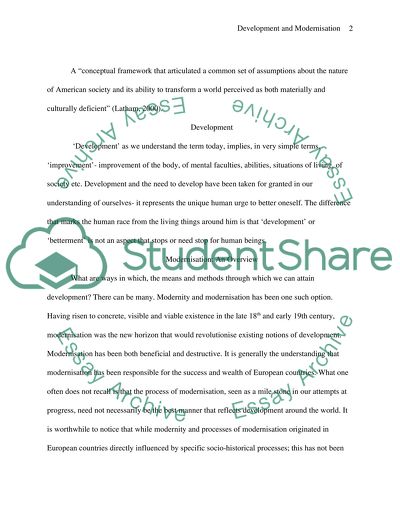Cite this document
(“Development and Modernisation Essay Example | Topics and Well Written Essays - 4250 words”, n.d.)
Development and Modernisation Essay Example | Topics and Well Written Essays - 4250 words. Retrieved from https://studentshare.org/sociology/1531858-development-and-modernisation
Development and Modernisation Essay Example | Topics and Well Written Essays - 4250 words. Retrieved from https://studentshare.org/sociology/1531858-development-and-modernisation
(Development and Modernisation Essay Example | Topics and Well Written Essays - 4250 Words)
Development and Modernisation Essay Example | Topics and Well Written Essays - 4250 Words. https://studentshare.org/sociology/1531858-development-and-modernisation.
Development and Modernisation Essay Example | Topics and Well Written Essays - 4250 Words. https://studentshare.org/sociology/1531858-development-and-modernisation.
“Development and Modernisation Essay Example | Topics and Well Written Essays - 4250 Words”, n.d. https://studentshare.org/sociology/1531858-development-and-modernisation.


